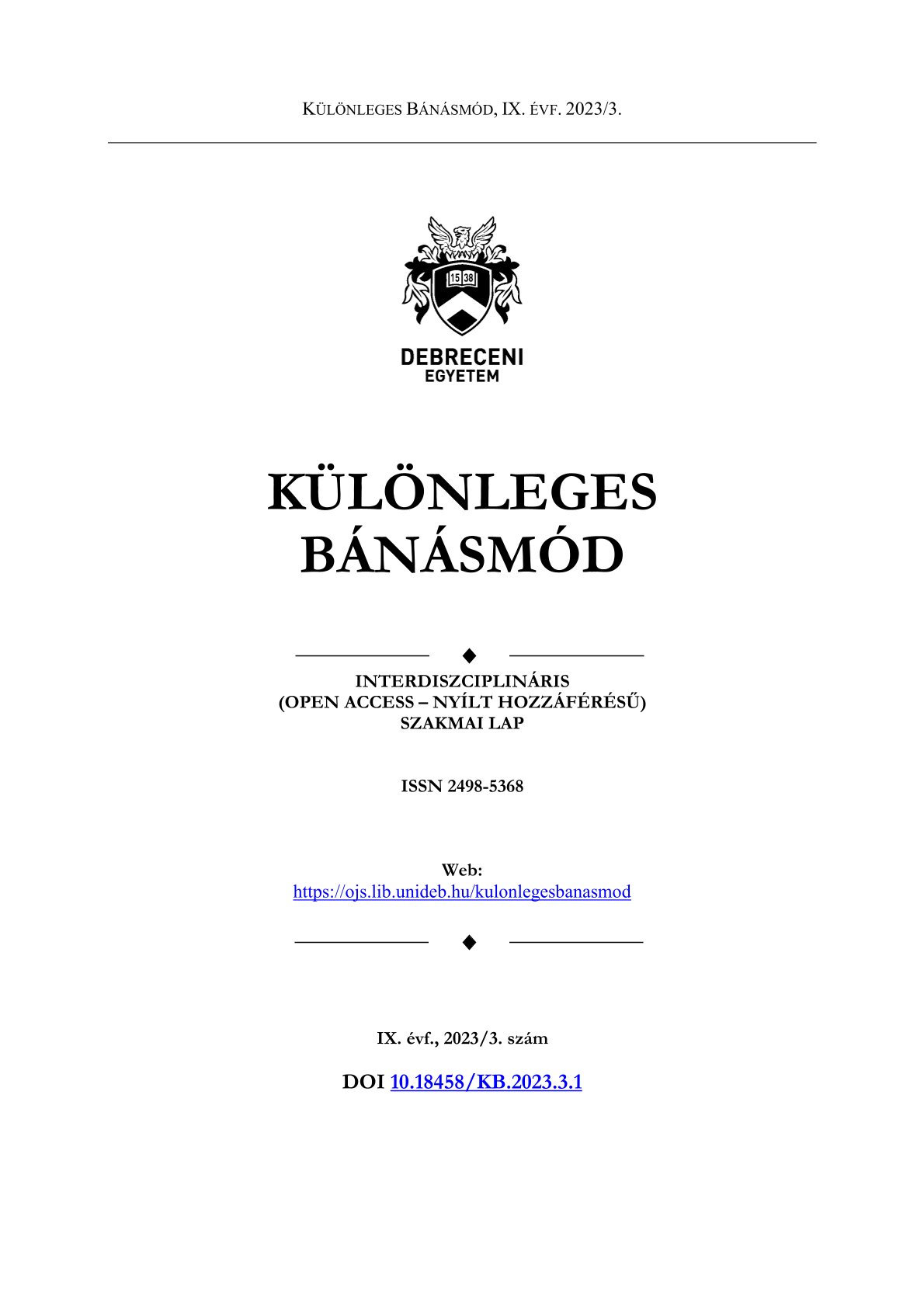COMPARATIVE MIND MAPPING OF EXPECTATION ON INTERNATIONAL STUDENTS IN HUNGARY: IS IT BEYOND EXPECTATION?
Authors
View
Keywords
License
Copyright (c) 2023 Miranda HESTI, Dr. Markos Valéria

This work is licensed under a Creative Commons Attribution-NonCommercial-NoDerivatives 4.0 International License.
How To Cite
Abstract
The student expectation in university is one of the crucial issues a university must address. The anticipation of students had a connection with students' satisfaction and engagement in higher education. This study was qualitative research, specifically in mind mapping analysis. The instrument was two forms of mind mapping by students (before and after coming to Hungary). This study’s participants were nine international students who currently study in Hungary. It was found that international students' mind mapping, type of mind mapping, and outline of general mind mapping of students’ expectations had similarities and differences.
References
- Ammigan, R., & Drexler, M. L. (2021). Exploring the relationship between academic performance and the international student experience: implications for university support offices and academic units. In Mohamad, M. & Boyd, J. (Eds.). International Student Support and Engagement: Innovative Practices for Universities. Routledge.
- Appleton-Knapp, S. L., & Krentler, K. A. (2006). Measuring student expectations and their effects on satisfaction: The importance of managing student expectations. Journal of Marketing Education, 28(3), 254–264. DOI 10.1177/0273475306293359
- Armstrong, R. W., Mok, C., Go, F. M., & Chan, A. (1997). The importance of cross-cultural expectations in the measurement of service quality perceptions in the hotel industry. International Journal of Hospitality Management, 16(2), 181–190. DOI 10.1016/s0278-4319(97)00004-2
- Badstübner, T., & Ecke, P. (2009). Student expectations, motivations, target language use, and perceived learning progress in a summer study abroad program in Germany. Die Unterrichtspraxis/Teaching German, 42(1), 41–49. DOI 10.1111/j.1756-1221.2009.00034.x
- Bates, E. A., & Kaye, L. K. (2014). “I’d be expecting caviar in lectures”: The impact of the new fee regime on undergraduate students’ expectations of higher education. Higher Education, 67(5), 655–673. DOI 10.1007/s10734-013-9671-3
- Borghi, S., Mainardes, E., & Silva, É. (2016). Expectations of higher education students: A comparison between the perception of student and teachers. Tertiary Education and Management, 22(2), 171–188. DOI 10.1080/13583883.2016.1188326
- Burgess-Allen, J., & Owen-Smith, V. (2010). Using mind mapping techniques for rapid qualitative data analysis in public participation processes. Health Expectations, 13(4), 406–415. DOI 10.1111/j.1369-7625.2010.00594.x
- Darlaston-Jones, D. K., Pike, L., Cohen, L., Young, A. H., Haunold, S., & Drew, N. M. (2003). Are they being served? Student expectations of higher education. Educational Research, 13 (1), 31-52.
- Fearnley, C. J. (2022). Mind mapping in qualitative data analysis: Managing interview data in interdisciplinary and multi-sited research projects. Geo: Geography and Environment, 9(1), 1-19. DOI 10.1002/geo2.109
- Gardiner, S., King, B., & Wilkins, H. (2013). The travel behaviours of international students: Nationality-based constraints and opportunities. Journal of Vacation Marketing, 19(4), 287–299. DOI 10.1177/1356766712471233
- Hassel, S., & Ridout, N. (2018a). An investigation of first-year students’ and lecturers’ expectations of university education. Frontiers in Psychology, 8, 2218. DOI 10.3389/fpsyg.2017.02218
- Işık, M. (2022). Expectations and level of satisfaction of university students from the higher education system. International Journal of Educational Methodology, 8(1), 163–178. DOI 10.12973/IJEM.8.1.163
- Könings, K. D., Brand-Gruwel, S., van Merriënboer, J. J. G., & Broers, N. J. (2008). Does a new learning environment come up to students’ expectations? A longitudinal study. Journal of Educational Psychology, 100(3), 535–548. DOI 10.1037/0022-0663.100.3.535
- Lobo, A., & Gurney, L. (2014). What did they expect? Exploring a link between students’ expectations, attendance and attrition on English language enhancement courses. Journal of Further and Higher Education, 38(5), 730–754. DOI 10.1080/0309877X.2013.817002
- Mammen, J. R., & Mammen, C. R. (2018). Beyond concept analysis: Uses of mind mapping software for visual representation, management, and analysis of diverse digital data. Research in Nursing and Health, 41(6), 583–592. DOI 10.1002/nur.21920
- Mao, Y., Ji, H., & Wang, R. (2022). Expectation and Reality: International students’ motivations and motivational adjustments to sustain academic journey in Chinese universities. Frontiers in Psychology, 13, 833407. DOI 10.3389/fpsyg.2022.833407
- Moraes, D. C.S. B., Montebello, I, M., Zaccaria, B. R., & Cremonezi, G. O. G. (2019). Identification of students’ expectations regarding higher education in the new social context: a meta-analytic study. Brazilian Journal of Marketing, 18(3), 222–245. DOI 10.5585/remark.v18i2.16373
- Paa, H. K., & McWhirter, E. H. (2000). Perceived influences on high school students’ current career expectations. Career Development Quarterly, 49(1), 29–44. DOI 10.1002/j.2161-0045.2000.tb00749.x
- Tempus Public Foundation. (2018). International students in Hungarian higher education institutions. Tempus Public Foundation. www.campusmundi.hu


 https://doi.org/10.18458/KB.2023.3.7
https://doi.org/10.18458/KB.2023.3.7